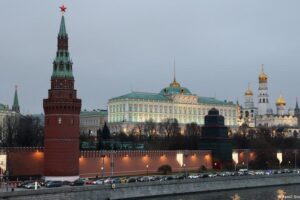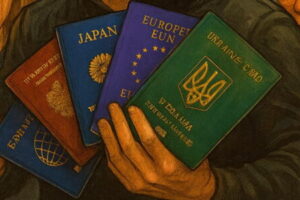
The Association and other tourism industry voices said they warned the Scottish Government against giving councils the power to introduce a percentage-based visitor levy rather than a flat rate, arguing that the model adds an unnecessary layer of complexity to the scheme.
Read more
As of October 1, accommodation bookings in Edinburgh for after July 24, 2026 are subject to a 5% transient visitor levy, or tourist tax, to help the city manage the impacts of mass tourism. The levy, which could raise up to £50 million annually, applies to hotels, hostels, guest houses, B&Bs, self-catering accommodation, camp sites and caravan parks.
The charge only applies to the first five consecutive nights of a stay, however, Booking.com – which has over 1,800 listings in the city – said it “can’t collect a Levy for only five consecutive nights,” telling businesses who use its platform: “Although the Levy is capped at five consecutive nights, we’ll attribute 5% of your rate to the Levy for the whole duration of the guest’s stay, irrespective of the length of stay. Please consider refunding any extra amount to your guests at departure.”
Airbnb, meanwhile, has told hosts in Edinburgh to apply the tourist tax by inflating their room rates, rather than having it automatically calculated at checkout, since the platform won’t implement the levy until July next year.
Official guidance states that regardless of when the tourist tax is paid, the total price inclusive of the levy “must be clearly communicated to the visitor at the point of booking, adhering with existing UK pricing regulations”.
Individual accommodation providers, rather than the guests or platforms they book through, are legally responsible for collecting and remitting the levy to the council and must ensure it is clearly included in the total cost shown to guests at the time of booking or payment. The guidance emphasises transparency for guests and accurate record-keeping, meaning hosts remain accountable even if a booking platform does not apply the charge automatically.
David Weston, chairman of the Scottish B&B Association, told The Herald: “Pricing regulations that apply in the UK mean you’re supposed to include all mandatory costs in your quoted price.
“We’re in a ridiculous and unacceptable situation, really, where hotels and B&Bs are forced to either break the law on the visitor levy or break the laws on price marking and price quoting, because they’re literally in the position where systems can’t do it.
“Technically some people are already breaking the law.
“We’re hearing that our members in Edinburgh are just trying to do their best to comply and use semi-manual systems to do so. But some of them are not able to fully comply with the law because their systems won’t quote the price including visitor levy perfectly every time – they’re sort of manually adding it in afterwards.
“And also the fact it’s a five night cap causes a problem as well, even Booking.com’s system can’t do that. They’re telling people to simply add 5% to their prices to try and make the price work, but then if you book six nights you’ve manually got to deduct some and give it back, which is incredibly messy and causes all sorts of issues and problems.
“If somebody gets a quote for nine nights they’ll see the price including 5% added to every night and that’s too high.
“So there’s lots of very considerable problems.
“It’s just such a pity it’s happened this way when it could have been managed in a much better way, particularly if it had been a flat fee or a tiered flat fee.”
Public finance minster Ivan McKee has said the Scottish Government is “actively extending powers to local authorities, including the option to introduce a single flat rate or tiered flat rate model alongside the existing percentage-based approach”.
Edinburgh Council leader Jane Meagher said in response to the announcement: “We look forward to working with the Scottish Government on how any potential changes could be introduced, and what this would mean for Local Authorities who have announced their intention to introduce a Visitor Levy, or already introduced it, as is likely to be the case for Edinburgh by the time the Bill is presented.”
Responding this week to concerns businesses were being forced to break the law over the tourist tax, she added: “Our five-night cap is an important part of the scheme which has remained unchanged since we announced our intention to proceed with a levy in January, and is designed to support seasonal workers and performers as well as visitors looking for a longer stay in our city.
More from our Edinburgh correspondent
“Council officers have been engaging with online travel agents on the roll out of the visitor levy scheme, but the Council does not have power to specify or control commercial arrangements that businesses enter into in order to sell their services. We encourage accommodation providers to raise this matter directly with their chosen provider.
“Supporting information on the levy for businesses is available on our and VisitScotland’s website. Businesses however do have a responsibility to keep up with updates to legislation and taxation, so should be aware they will need to abide by this.
“Online travel agents are also well versed with visitor levies, which they successfully apply all over the world. They, as well as accommodation providers, have had over nine months to prepare for Edinburgh’s scheme coming into force.”





